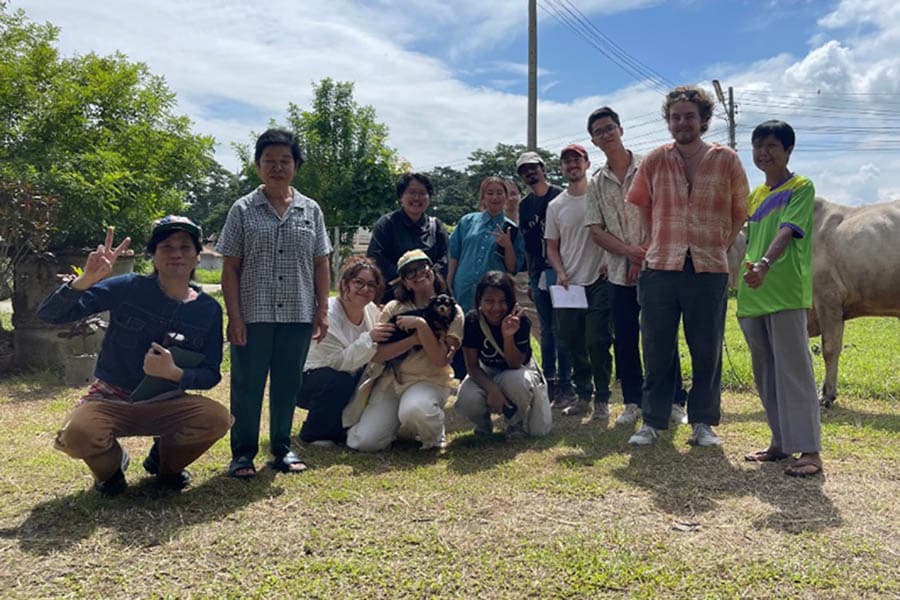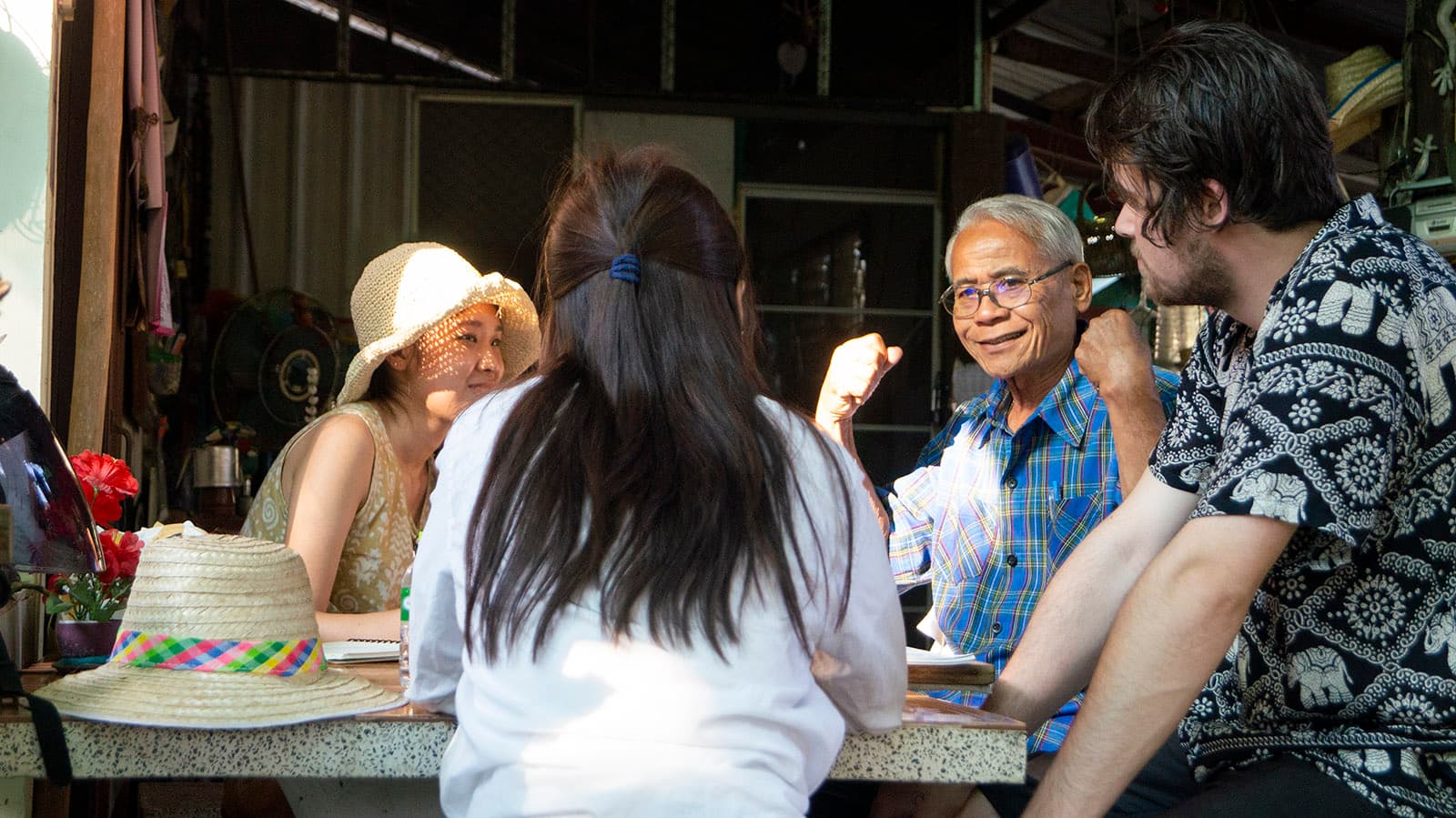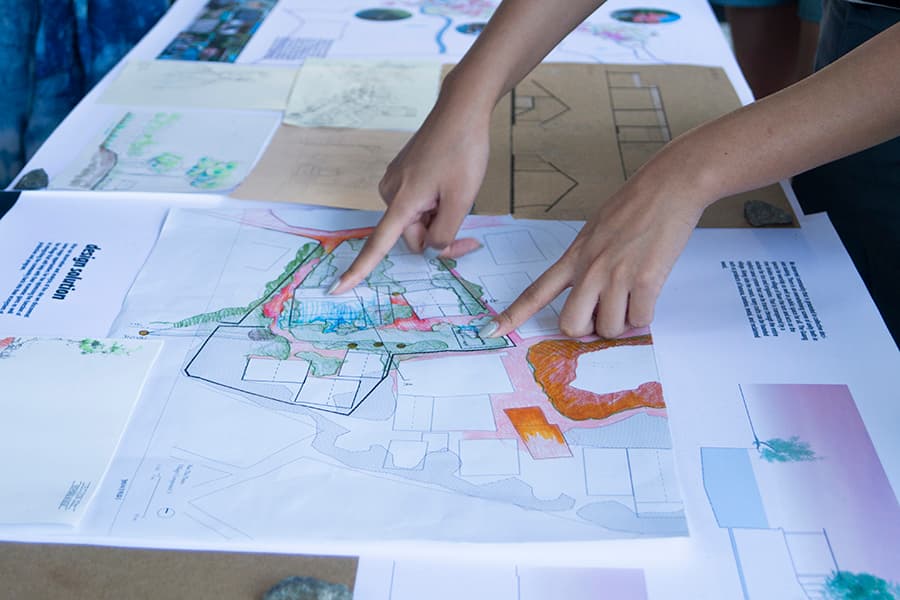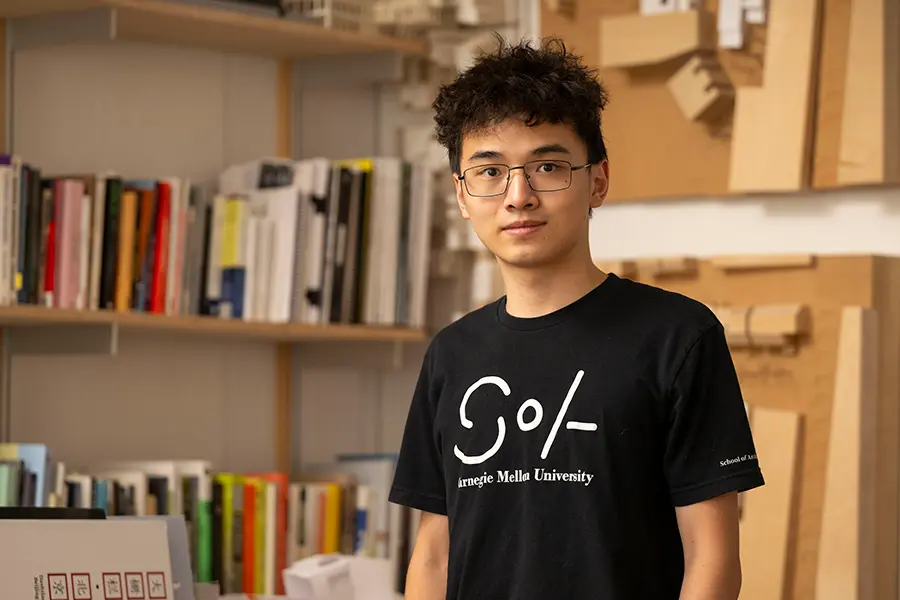
Amplifying Unheard Voices
Undergraduate research support helps CMU student Andy Jiang increase awareness of agriculture land and community loss in Thailand
By Kelly Saavedra
The globalization of the largest city in northern Thailand, Chiang Mai, has led to the development of road networks that break up rice fields and harden the irrigation system used to fill rice paddies in the city’s outskirts. These new road systems have also led to city developments that separate local villagers, who have relied on the irrigation system — and each other — for hundreds of years.
“The new roads will bring more traffic to the city and help drive economic growth, but city planners are not considering the impact on the outskirts when master plans are being generated,” says Andy Jiang, a junior studying architecture in the Carnegie Mellon University’s College of Fine Arts.
“The new roads will bring more traffic to the city and help drive economic growth, but city planners are not considering the impact on the outskirts when master plans are being generated.”
Andy Jiang, School of Architecture, Class of 2025
Summer Undergraduate Research Fellowship (SURF) recipient
Andy received a Summer Undergraduate Research Fellowship (SURF) to create an interactive, online archive of the stories shared by villagers in this area of Thailand, also known as the Kingdom of a Million Rice Fields. Drawing inspiration from engaging site designs like Refugee Republic, he hopes the archive will amplify the people’s voices and increase the public’s awareness around the new developments, the city’s growth and the loss of agricultural land.
“It’s this notion of curating as activism,” he says. “It’s very meaningful to me to create something like this. I believe it will have a lot of societal impact in the future.”
Andy learned about the project through Tommy CheeMou Yang, visiting special faculty in the School of Architecture, who, along with his students, has been collecting stories from the villagers since 2018.
Yang explained the villages, by tradition, nurture communal practices in which some people take care of the canals, some people grow the rice and some people do the craft making. Each village also has a temple that is the symbol of the village’s identity. The people in the villages provide the monks with their daily alms, and the monks, in return, take care of the people.
“There are all these social relationships that happen within the villages that contemporary, urban, transportation-driven planning really does not nurture,” Yang says. “And that’s the main thread or theme that runs through all the stories — not so much the fear of losing the rice fields, but the fear of losing that social network of support, which is their way of life.”
One of the upsides of the new highways, Yang notes, is that the buying of agricultural land gives money to the villagers.
“The downside of it is the loss of agricultural land, and the suburban sprawl that’s developing for a whole community who just goes home to sleep but not to actually live in and be part of a community,” Yang says.
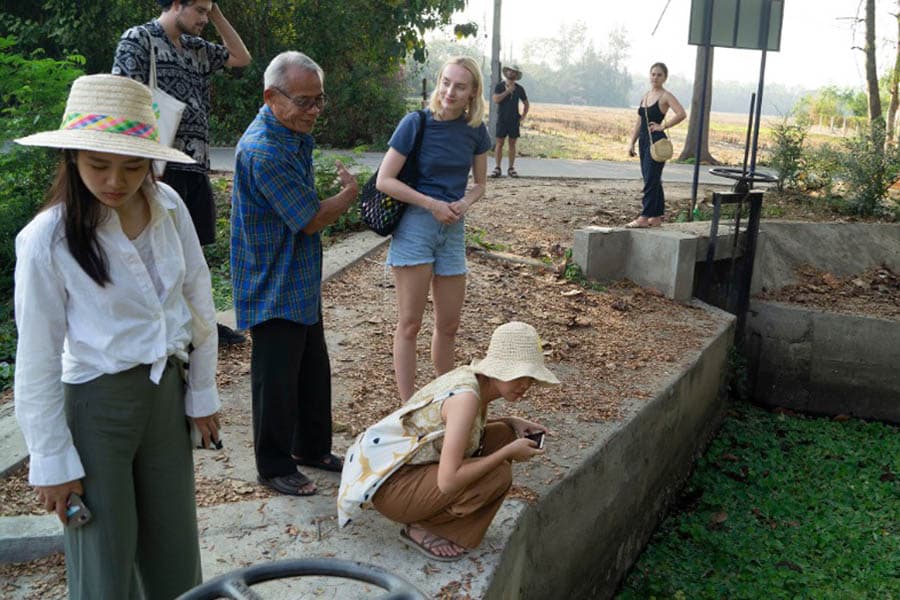
Students walk through a village with Phaw Pheeyin, who tells them about the canal systems and their upkeep. (Tommy Yang, January 2020)
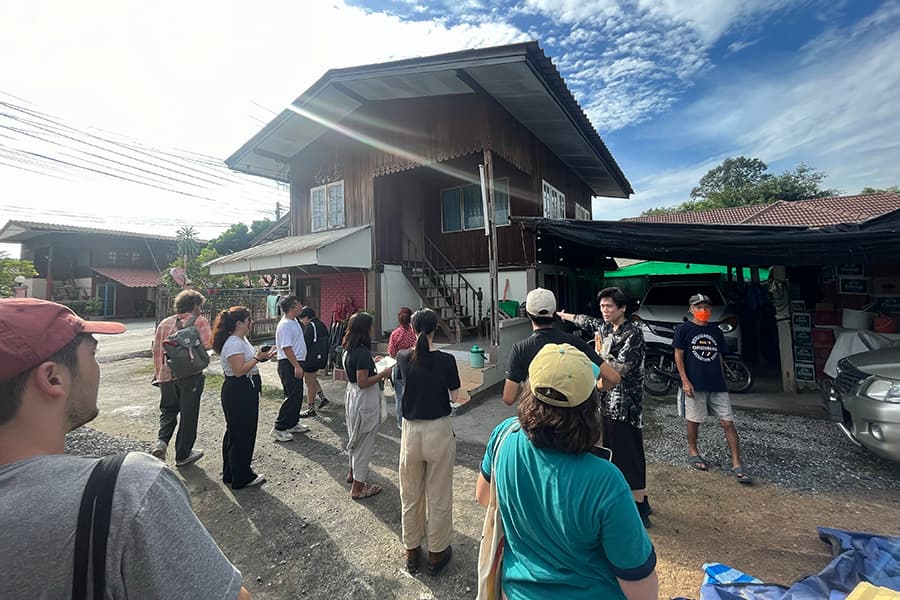
Locals teach Carnegie Mellon University architecture students about a restaurant compound in their village. (Tommy Yang, August 2023)
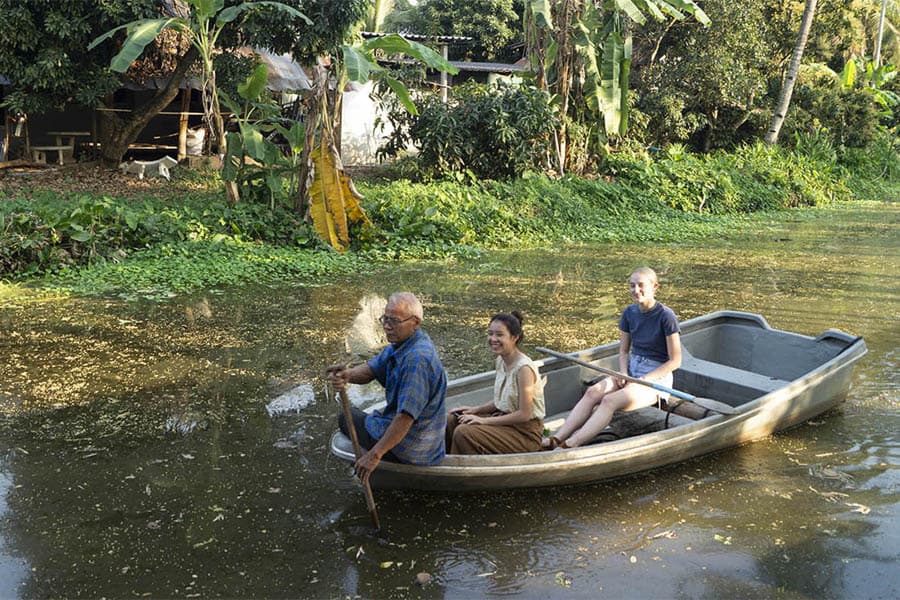
Phaw Pheeyin rows architecture students past a village compound in Thailand, sharing details on the upkeep of the canal systems by locals through yearly dredging. (Tommy Yang, 2020)
The project is an extension of field work Yang performed as a student himself that involved mapping and drawing the cosmopolitan villages in Chiang Mai with other students under the guidance of Professor of Architecture and Urban Design Brian McGrath from Parsons School of Design.
How Andy is stitching the individual stories together in the archive to tell the larger narrative requires a lot of thought and hard work, Yang says, and “is an act of service and caregiving to those we have interviewed.”
The project is a good match for Andy, who has a passion for creating interactive experiences. Andy is vice president of the Game Creation Society (GCS), a student-run organization at CMU that provides an environment for people of various disciplines to work together on projects as they would in a real development environment.
In July, he participated in the Gamemakers Toolkit Game Jam, an annual game-making marathon where individuals and teams have 48 hours to create a game that fits that year’s theme. Andy’s team won 11th place among the 7,000 games submitted.
Since June 2023, the archive project has expanded from four to 12 villages. When the website goes live in May, viewers will be able to immerse themselves in the villagers’ stories and learn about the matrilocal networks still present in their family compounds through pages that contain 3D models of the structures and layers of information that display historical and present-day data.
“Tommy is a great instructor. All the projects he leads are very innovative,” Andy says. “I enjoy making interactive experiences and hope to make an impact on the world through them, whether it’s a form of activism through projects like this one or by bringing joy and connection to people’s lives through the games I create.”
